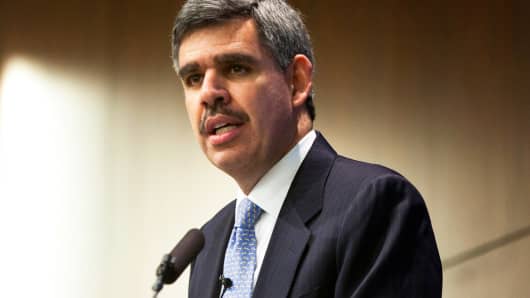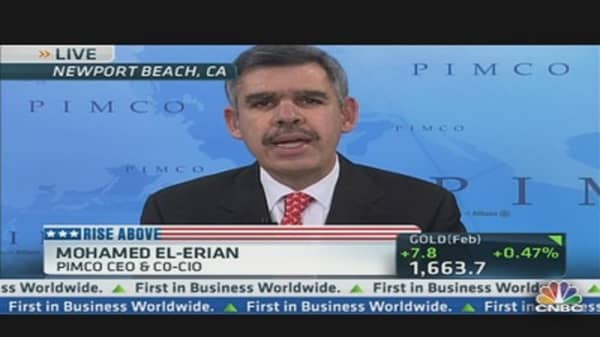But the inability of Washington to address the burgeoning debt and deficit problems without stunting growth has prolonged the weakness and kept growth prospects dim.
"The new normal is sluggish growth and persistently high unemployment and concerns about debt and deficits," El-Erian said. "Now we have that as the baseline with fatter tails. We can either slip into recession, or if our politicians get their act together we can come out much quicker. But the fatter tail now is the possibility of slipping into recession."
The "tails" of which El-Erian spoke refer to either end of the traditional bell curve of possiblities. A fatter tail indicates a higher probability of an extreme outcome outside of expected possibilities.
Only an activist Federal Reserve has kept the markets from reacting more severely to the Washington dysfunction, he said. (Read More: Central Banks: How They Are Ruling the Financial World)
"We have bickering and dithering politicians, but we have the Fed waiting to build a bridge above them," he said. "The Fed has been building a bridge with the hope that the politicians can determine the destination for the bridge.
"What markets have priced in is a hyperactive Fed that is not waiting for politicians to get their act together, is willing to venture deeper into the unknown using untested policies. And that is what you're seeing in markets now - a big bet on the Fed."
—By CNBC's Jeff Cox





